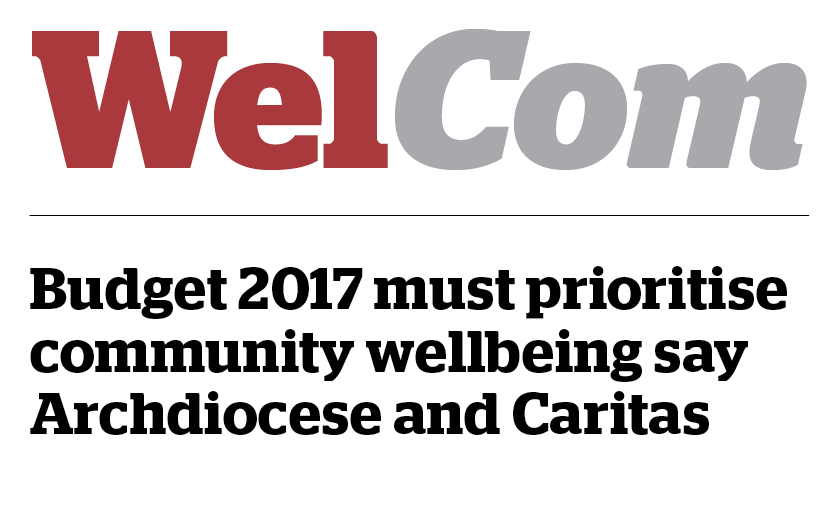WelCom March 2017:
National News
Lisa Beech
‘Kaikōura social services are anticipating significant hardship over the coming winter’, Te Tai o Marokura social services manager Riria Allen told the Finance and Expenditure Select Committee in support of the Archdiocese of Wellington’s submission on the government’s 2017 Budget policy statement.
Speaking to the select committee by phone from Kaikōura early February, Riria said many Kaikōura families survive over winter on their summer earnings. But after the November 14 earthquake, without food from the sea – through fishing and shell fish gathering – some families are in need of ongoing food support months after the quake.
‘There’s also now a housing shortage in Kaikōura that will worsen as rebuild workers coming into the area also need housing,’ Riria told the committee. ‘Some families have lost chimneys and won’t have heating in their homes.’
On behalf of Catholic social services Lisa Beech told the committee the Archdiocese supports the government’s Budget priority of responding to the Kaikōura/Marlborough earthquake over anticipated budgeted cuts.
However she emphasised, ‘Rebuilding Kaikōura is not just about roading and building infrastructure, but also about ensuring long-term community wellbeing’.
The Kaikōura community has shown it is capable of overcoming economic hardship.
‘This is an entrepreneurial community that has previously come up with innovative and environmentally sustainable ways to overcome unemployment and economic hardship. It is essential local communities are well involved in decisions that are made about their future wellbeing.’
In its oral submission on 8 February, Caritas Aotearoa New Zealand also pointed to the local Kaikōura community affected by the earthquake as well as communities in New Zealand that will be most affected by climate change as examples of vulnerable groups to be prioritised in this year’s Budget.
‘We support the government prioritising a response to the Kaikōura earthquakes, but this must also address the impact on the health and psychosocial well-being of people and their communities,’ said Director Julianne Hickey.
‘Our staff are in Kaikōura with Te tai o te Marokura Health and Social Service, looking at how the earthquake has impacted kai moana in the area, and in turn whānau health. Local tangata whenua are concerned the iwi voice is missing in the decisions made in the earthquake recovery.’
Mrs Hickey said it was inconsistent to prioritise debt repayment to increase New Zealand’s resilience for economic shocks and natural disasters, but then to neglect mitigating and adapting to climate change.
‘If we fail to take actions now, it is low-income communities in low-lying regions who will struggle the most,’ Mrs Hickey said. ‘Prioritising our mitigation and adaptation efforts is vital. We need to act now for the resilience of our economy and for vulnerable communities in New Zealand.’
Lisa Beech is Community Organiser, Catholic Social Services, Archdiocese of Wellington.
